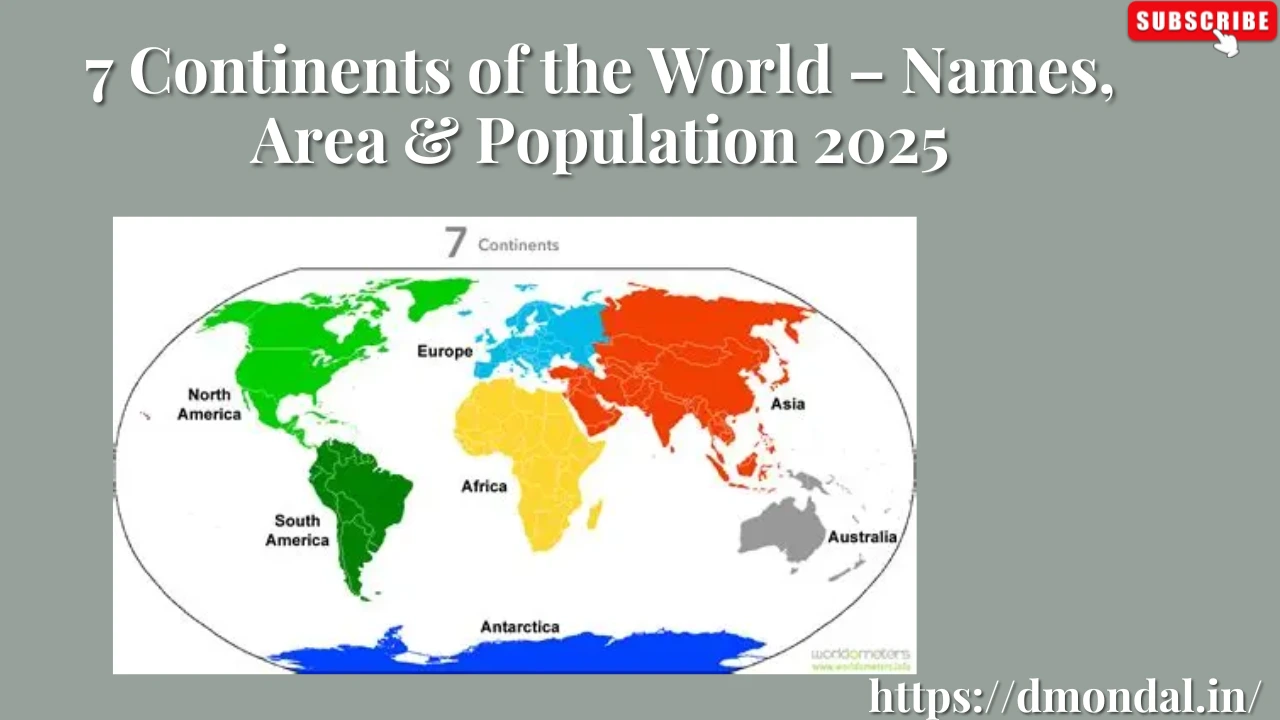7 Continents of the World – Names, Area & Population 2025
The Earth is divided into seven continents, each varying in size, population, geography, and culture. Learning about continents is fundamental for students, geography enthusiasts, and competitive exam aspirants.
In this article, we provide the names of all 7 continents, their area in square kilometers, population, and interesting facts.
✅ 7 Continents of the World
| Continent | Area (Approx.) | Population (Approx. 2025) | Key Facts |
|---|---|---|---|
| Asia | 44.58 million sq. km | 4.8 billion | Largest continent by area and population; home to China and India. |
| Africa | 30.37 million sq. km | 1.5 billion | Rich in natural resources; diverse cultures and wildlife. |
| North America | 24.71 million sq. km | 600 million | Includes USA, Canada, and Mexico; highly developed economies. |
| South America | 17.84 million sq. km | 430 million | Famous for Amazon rainforest and Andes mountains. |
| Antarctica | 14.0 million sq. km | 1,000 (scientists only) | Covered by ice; least populated continent; no permanent residents. |
| Europe | 10.18 million sq. km | 750 million | Known for culture, history, and economic development. |
| Australia (Oceania) | 8.56 million sq. km | 45 million | Includes Australia, New Zealand, and Pacific islands. |
🌏 Key Facts About Continents
- Asia is the largest continent in both area and population.
- Antarctica is the coldest and least populated continent.
- Europe and Asia are connected by land but considered separate continents due to cultural and historical differences.
- Africa has the highest biodiversity among all continents.
- Australia (Oceania) is the smallest continent by population.
📌 Importance of Learning Continents
- Helps in geography exams and competitive exams.
- Essential for students to understand global population distribution.
- Useful in travel, trade, and international relations knowledge.
- Provides insights into cultural, economic, and environmental diversity.
Read More: Click here
